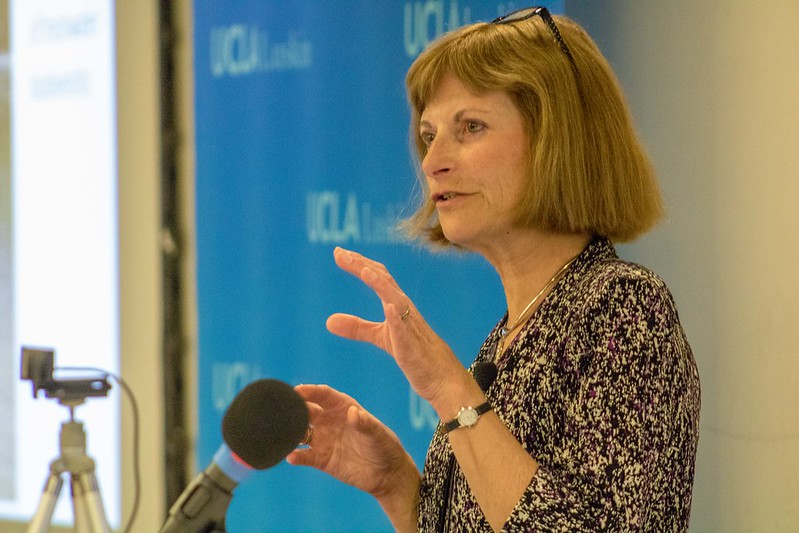Loukaitou-Sideris on Psychological Accessibility of Parks for Seniors
Urban Planning Professor Anastasia Loukaitou-Sideris spoke to the BBC about the growing trend of parks designed for older adults. Inspired by Chinese parks with machines for gentle stretching and strength training, governments around the world have started building playgrounds to improve health among older populations. Loukaitou-Sideris stressed the importance of accessible design. “Often older adults feel not welcome in parks that are primarily designed for younger populations,” she said. “In other words, parks are not psychologically accessible to them.” After studying park use among older adults across different countries, Loukaitou-Sideris found that “park location, design and amenities most influence use among senior citizens.” Senior playgrounds encourage exercise, social connection and time spent in nature, improving health and effectively reducing the cost of public healthcare. Golden Age Park, the first park designed for seniors in Los Angeles, was created using guidelines set forth in Loukaitou-Sideris’ research and will open Saturday, Nov. 2.

